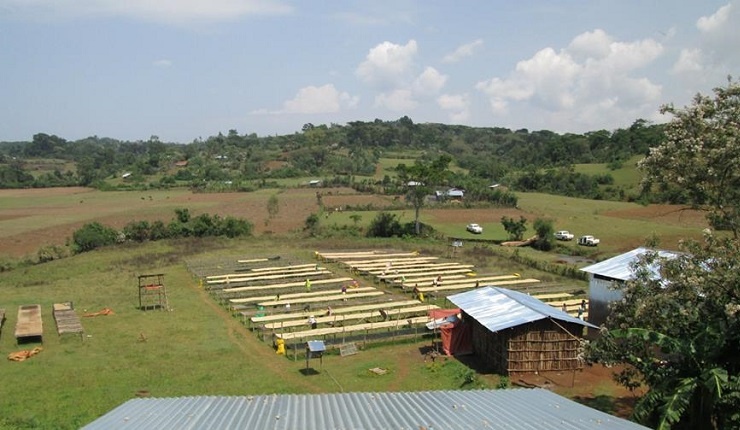Ethiopian startup Triple Bottom Line (3BL) Enterprises is working on a project called Flowius, which builds tech-managed, piped water systems so “radically affordable” that rural Ethiopians living on US$1.50 a day can get water where they want it most – in their homes.
Basically, 3BL builds low-cost piped water systems into people’s homes in rural communities, which co-founder Chris Turnbull-Grimes says it does by combining an engineering philosophy that has an emphasis on affordability with a network of rurally-based franchises.
This is all managed by a suite of mobile tools.
“First is Flowius Collect, which maps out communities without the need for surveying teams and minimal training,” said Turnbull-Grimes. “The second app is Flowius Manage, which provides financial and technical tools to operate and maintain our piped water systems, with push notifications and instructional videos. The last mobile app is Flowius Connect for construction management, which compiles construction process tracking with material and labour management.”
3BL was launched with the understanding that nobody in the world wants to walk for water.
“As such, the goal for most people is to have water piped to them in their homes. There are a few reasons why this typically doesn’t happen, though. First and most importantly, piped water systems are usually too expensive for rural people. Other than that, there is usually little access to skilled operators, quality existing infrastructure, and credit for water projects. We work to combine solutions for all of these so people can get water at home,” said Turnbull-Grimes.
The startup has been mostly self-funded, but has been selected into the USAID Development Innovation Ventures programme, which is supporting its operations for the next couple of years. For now, it is running a pilot programme with 600 households in Wita, a town in the Gurage Zone of the SNNPR region of Ethiopia, but Turnbull-Grimes said it has plans to scale.
“We’re looking to expand to three more communities within the year, but we’re waiting to make sure everything is working with at our pilot project efficiently first. We do plan on expanding to other regions through Ethiopia next year and our goal is international expansion in three to four years,” he said.
3BL makes money in two ways, the first of which is by serving as a contractor for the design and construction of the water piping systems. As such, it receives a lump sum at the start of the project.
“Then, we set up contracts for our franchises to operate and maintain these systems to earn recurring revenue from these projects,” said Turnbull-Grimes. Though the startup’s only revenue thus far has come from the construction of the pilot project and a small amount of operating revenue, it expects to break even by year three.
3BL has faced some fairly significant challenges in getting off the ground.
“We ran into some issues importing some goods for the construction of the pilot project, which caused some delays. We also ran into some problems in construction itself. This was due to the community’s desire to use volunteer labour for a large portion of the construction. Unfortunately, as we all know, the volunteers were often hard to organise and keep motivated over a long period of time, so it ended up causing delays and cost increases compared to using more traditional construction methods,” Turnbull-Grimes said.
“Other than that, the only main difficulty we’ve been having is dealing with bureaucracy, a fairly significant – but improving – aspect of business in Ethiopia.”


